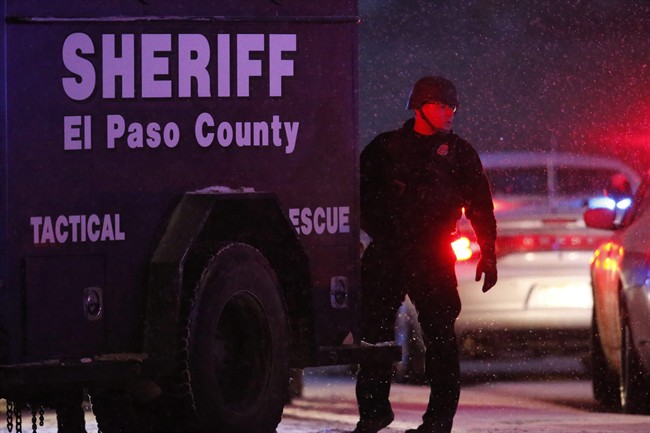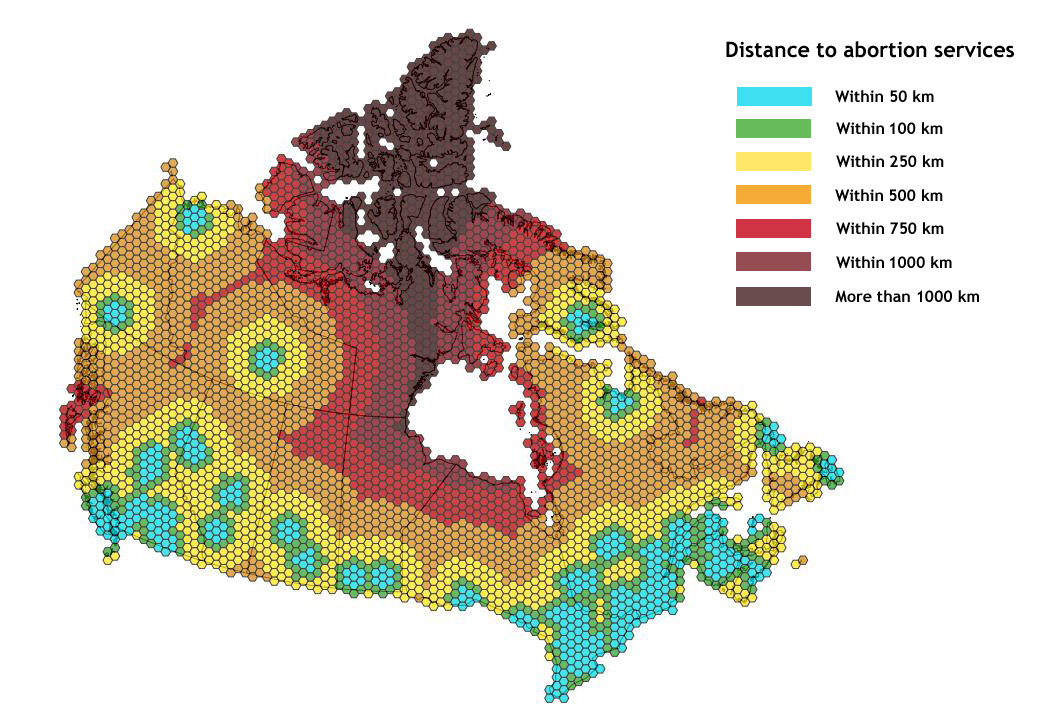Suzanne Newman used to bike to work in a bulletproof vest.

She isn’t a cop. She doesn’t work in a war zone. She’s a doctor, in Winnipeg. But because she’s a doctor who provides abortions, she’s a target and she knows it.
The flak jacket was a temporary thing, urged on her by authorities in the wake of physician Jack Fainman’s shooting in 1997.
But the threat remains — implied if not explicit.
The world got a reminder that women’s health can be a deadly profession late last month, when a gunman shot three people to death and wounded nine others while barricaded for hours in a Colorado Planned Parenthood clinic.
In the wake of that shooting, as a new government takes the reins and as a new abortion pill rolls out next year, Global News took a closer look at who gets access to abortions — and who doesn’t.
Authorities haven’t put forward a motive for the shooting, although suspect Robert Dear reportedly told an officer, “No more baby parts” — a statement reminiscent of months of vitriol American politicians have expressed against Planned Parenthood.
ABORTION FOR SOME: Access still depends on who you are and where you live
Provider patchwork: How abortion access varies across Canada
How the ‘abortion pill’ Mifegymiso could change reproductive health
Canada’s comparatively safer. But the prospect of violence and harassment is real enough to deter women, and even health practitioners, from speaking about, seeking out, or providing abortions.
It’s real enough that you can’t get a complete list of abortion providers across Canada because many of them, hospitals especially, don’t want to publicize that part of their health care. They don’t want to attract attention, or protesters bearing biblical exhortations and lurid fetal images on signs.
We know, because we tried: Global News wanted to map the locations of surgical (as opposed to drug-only) abortion providers across Canada. But there isn’t one that’s public. B.C. wouldn’t even give us a breakdown of how many abortions are in hospitals versus clinics.
So we called Action Canada for Sexual Health and Rights, which has a 24-hour hotline helping women who need an abortion and don’t know where to go or how to get one.
Over the phone, the group read us the community-level locations for the 124 hospitals and clinics performing surgical abortions across the country.
Because we couldn’t map the exact or even general locations (in some cases, we’re talking about the only hospital in town), Global News’s Leslie Young created a heat map showing how far you’d be from an abortion-providing facility from anywhere in the country.
For more on the reasons behind persistent geographic inequities in abortion access, click here.
Most Canadians live in urban areas and most urban areas are well served. But in locations across the country, including many more poor or rural areas, you’re looking at hours in a car (or on a ferry, or in a plane) to get medical care.
‘Most providers that I know … do not go public about it’
Newman sees those women daily. Old and young, moms and teenagers and First Nations women who’ve flown or driven from reserves up north.
Last Thursday it was a young mother from Thompson, 750 kilometres north of Winnipeg, who had to pay for the flight, hotel and abortion out of her own pocket because her Manitoba health card was out of date.
The day before, a 20-year-old whose doctor refused to give her a referral because she’d had an abortion six years earlier after being raped.
The week before that, a 26-year-old who lied to her family about why she needed a government voucher to travel from her remote reserve to Newman’s Winnipeg clinic.
“It is still politicized. It shouldn’t be. … We thought we’d put that to rest,” she said.
“It is a medically necessary procedure. It should be a matter between the woman and her provider.”
But she wishes there were a way to get more providers, period, and to get more of them to talk about their work.
“Most providers that I know — here, anyways — do not actually go public about it. Would not do an interview,” Newman said.
“I guess they’re worried about backlash. I guess they’re worried about losing their colleagues’ support.”
Newman used to worry about that, about what her older, more religious patients thought of her practice.
Not any more.
“I’m very proud of what I do,” she said.
“I feel that if I can be out and up front about it … then women who need that procedure maybe will not feel as ashamed or guilty or stigmatized.”
About 16 per cent of Canadian hospitals offer abortions — a proportion that’s actually dropped in the past decade.
Patricia LaRue, director of Gatineau’s Clinique des Femmes, knows it isn’t an easy decision for physicians to to offer abortions.
“Some doctors just say it’s too complicated; it’s too controversial. And there is still a stigma for doctors who provide abortions,” she said.
One provider LaRue knows, in Gatineau, is hesitant to speak openly about her job. “Not everyone in her family knows.” LaRue understands why.
“When I go pick up my kids at daycare and other moms ask me what I do, and I say I work in an abortion clinic, I get some dirty looks. …
“I don’t think that everyone’s willing, in their life, to take that extra stress.”
‘Women’s bodies are not incubators’
For Sandeep Prasad, the solution — or one step toward it, anyway — is simple: Stop letting hospitals have religions.
“Institutional objections should not be permitted,” he said.
Right now, many faith-affiliated hospitals don’t provide abortions, tubal ligations, vasectomies and other procedures deemed to contravene their religious dictates.
Prasad, head of Action Canada for Sexual Health and Rights, argues there’s no place for that in a 21st-Century health care system.
“Freedom of religion, belief and conscience applies to individuals,” he said.
“It’s not a human right of institutions.”
The University of Ottawa’s Christabelle Sethna argues improving access to sex ed and contraceptives, as well as reproductive, maternal, neonatal and child care will make abortions rarer because women won’t need them as often.
But it comes down to individual autonomy, she said. And abortion access is part of that — telling a woman she needs to carry a fetus to term whether she wants to or not isn’t good enough, Sethna argues.
“Women’s bodies are not incubators for society. We are not breeders for society,” she said.
“We are individuals with individual lives, hopes, dreams, wishes and care. So women make decisions, they make measured decisions, about whether or not they want to terminate a particular pregnancy.”





Comments